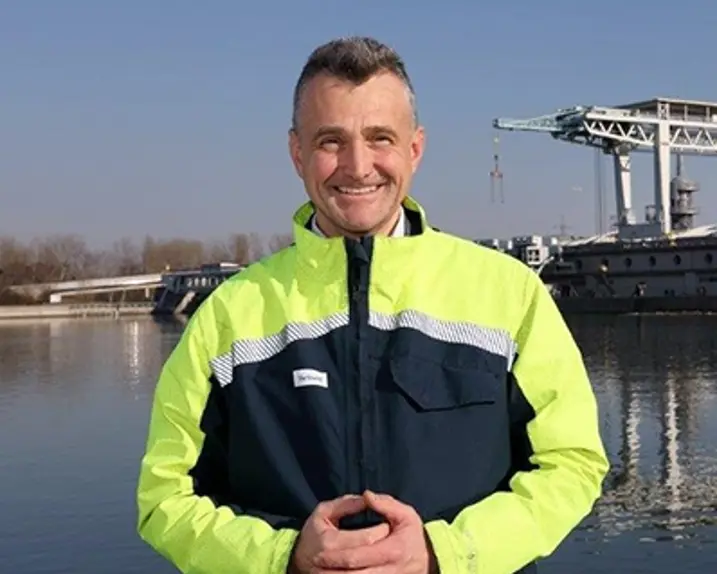Danube Day 2025: Danube power plants become cleaners
VERBUND’s Danube power plants have seen spectacular environmental successes in recent years. Less well known are the power plants’ daily efforts when it comes to cleaning up: in 2024, 7,200 tonnes of floating debris were collected at the VERBUND power plants and disposed of.
Power plants are an artificial barrier. This can be cumbersome for fish but a major advantage for cleanliness. Everything that drifts on the Danube inevitably gets caught on the dam walls. When floods occur, there are enormous logs and large quantities of driftwood, as well as everyday waste of all kinds, from plastic bottles to portable toilets. All this material is recovered by rake cleaning equipment and employees on a daily basis and handed over to waste disposal companies. This prevents plastic from being ground up by the force of the Danube and entering the food chain.
2024 floods reflected in the statistics
Lower Austria in particular saw a significant increase in the amount of floating debris in 2024. The catastrophic rainfall washed up large amounts of flotsam. When flooding occurs, the weir fields are opened to let the water drain away. The refilling process then puts enormous strain on the power plant team, because the floating debris needs to be cleared day and night. In Altenwörth, an 80-tonne floating crane even had to help clear up the aftermath of the September flooding.
Compared with 2023, it can be seen that the total volume of screened debris on the Danube was stable. In 2023, however, the focus of the floods was in Upper Austria and moved to Lower Austria in 2024.
| Screened debris – hydropower plants (t) | 2023 | 2024 |
| Danube Upper Austria | 4,167 | 2,914 |
| Danube Lower Austria | 3,457 | 4,355 |
Danube Day
On 29th June, the states bordering the Danube celebrate international Danube Day. It publicly commemorates the signing of the Danube River Protection Convention in 1994 with the aim of promoting sustainable water stewardship on Central Europe’s longest river.
